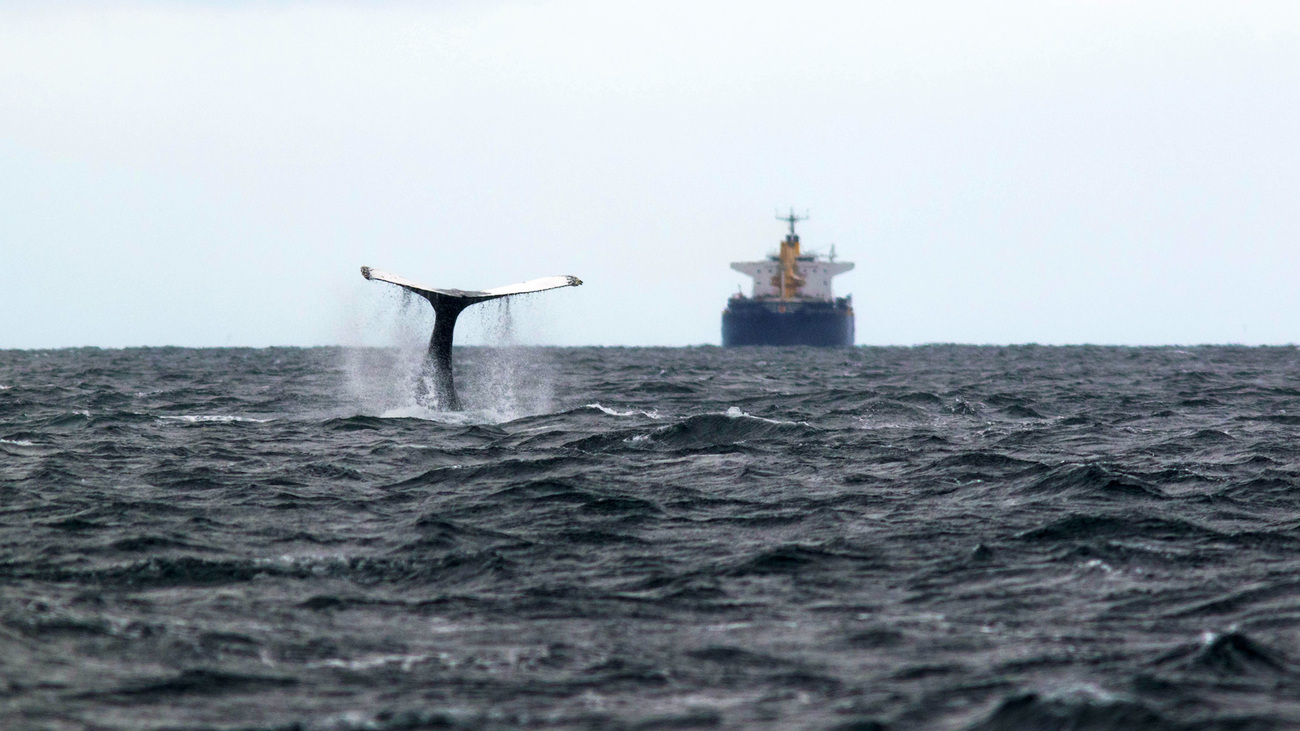Ocean Noise Reduction - Global
Saving marine life could be as easy as turning down the volumeEU Parliament takes steps to tackle marine pollution from shipping
EU Parliament takes steps to tackle marine pollution from shipping

During November’s plenary session, the European Parliament adopted its position on the revision of the Ship-Source Pollution Directive (Directive 2005/35/EC). The aim of the Directive is to introduce criminal penalties for discharges of polluting substances from ships into European seas.
Modern rules for marine safety and pollution
The Directive is part of the Maritime Safety Package of June 2023. With a total of five legislative proposals, the European Commission aims to modernise the rules for maritime safety and the prevention of marine pollution from ships.
Origins of the directive
The Ship-Source Pollution Directive originally entered into force in 2005 after several disastrous oil spills occurred in European Union waters, such as the Erika in 1999 and the Prestige in 2002. The law was designed to punish and prevent such discharges in the future. It also implemented international rules on pollution by oil and harmful liquid substances at the European level.
Underwater noise pollution
IFAW welcomed this initiative as maritime transport and ship-source pollution have increased significantly over the past decades. One source of pollution that requires particular attention is underwater noise pollution. Globally, half of all underwater radiated noise is produced by the commercial shipping sector.
Scientific studies show that underwater noise pollution is detrimental to marine species, both in the short and long term. Marine mammals are particularly affected, but so are fish, crustaceans, and invertebrates. Noise pollution, however, was not part of the original proposal for the revised Directive.
Other types of pollution
For that reason, IFAW worked with other NGOs to urge members of the European Parliament to ensure that the revised Directive addresses underwater noise. As part of our vision to stop pollution at the source, we also called for other types of pollution to be included in the Directive: waste pollution from ships, container loss, as well as chemical and heavy metal pollution from ships’ exhaust gas cleaning systems.
What was achieved
IFAW welcomes the fact that many of our recommendations found their way into the text. Marine litter from sources other than ships, container loss, loss of plastic pellets, and underwater noise are now explicitly mentioned. This makes it possible to better prepare for future international and EU legislation to protect the marine environment in line with the latest science on these issues.
Shortcomings
Regardless of these improvements, the scope of the Directive remains too narrow and too few of the proposed measures are binding. Therefore, we call on policymakers to support the amendments of the European Parliament during the next stages of the legislative process and establish more binding rules.
A science-backed solution for safer seas
IFAW will continue to work with policymakers and relevant stakeholders to reduce underwater noise pollution from shipping. Our Blue Speeds campaign presents an effective and science-backed solution to make the seas safer for marine animals: reduced shipping speeds.
A recent study shows that a 10% reduction in the average speed of the worldwide fleet could potentially lead to a 40% decrease in underwater noise pollution and a 13% reduction in shipping-related greenhouse gas emissions. Slowing down ship speeds would yield additional advantages for biodiversity, including a 50% reduction in whale strikes, as well as benefits for human health through the reduction of air pollution. On top of these environmental benefits, Blue Speeds is also a cost-effective way to reduce fuel costs for the shipping industry.
Related content
Press releases
EU fails to reduce ocean underwater noise while solutions already exist
Read moreBlog
Ocean noise pollution: What is it and why is it a problem?
Read morePress releases
EU takes historic step to protect marine life: mandatory limits on underwater noise pollution communicated to Member States
Read moreEvery problem has a solution, every solution needs support.
The problems we face are urgent, complicated, and resistant to change. Real solutions demand creativity, hard work, and involvement from people like you.